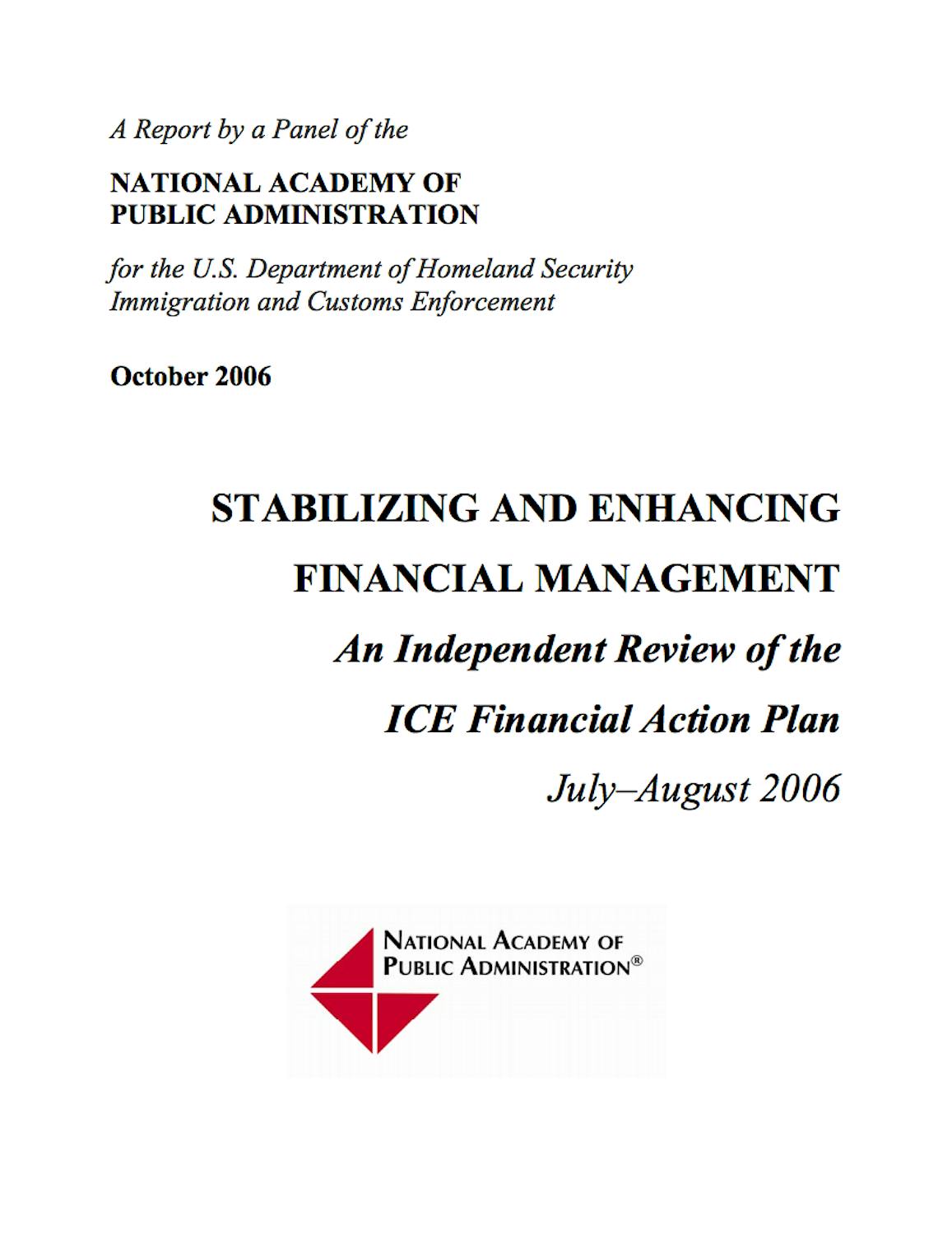
Stabilizing and Enhancing Financial Management: An Independent Review of the ICE Financial Action Plan
Since its creation in March 2003, Immigration and Customs Enforcement (ICE) has been the largest investigative branch of the U.S. Department of Homeland Security (DHS).
The agency combined the law enforcement arms of the then-Immigration and Naturalization Service and the former U.S. Customs Service, as well as merging the Federal Protective Service (FPS) as a means to more effectively enforce immigration and customs laws and protect the United States against terrorist attacks.
Given the new and varied responsibilities, ICE struggled for two years at establishing good financial management practices to eliminate problems of the past. In 2005, KPMG, DHS’ external auditor, rendered a disclaimer on the financial statements of the department, including ICE. KPMG noted 10 department-wide material weaknesses; ICE was a co-owner of eight of them. To address these material weaknesses, the Chief Financial Officer (CFO) developed a Financial Action Plan (FAP). ICE asked the Academy to conduct an independent high-level review of the plan and provide recommendations for improvement.
Click the button below to view the View Study Report.
View ReportKey Findings
The Panel identified only minor issues regarding the overall approach to the FAP or the specific steps outlined in it. It believes that the plan is adequate in terms of the steps to address the 2005 material weaknesses pertaining to ICE. However, good financial management is a continuous cycle of operations, analysis, feedback and improvement. Left unattended, today’s good process can quickly deteriorate due to changes in workload, staffing, management focus or external factors.
Recommendations
The Panel believes that the CFO has placed the appropriate focus on stabilizing current business operations and that the plan is serving as a strong foundation to do that. As the CFO continues to make progress with the FAP and demonstrates stability in financial operations, ICE should be better positioned to look strategically at its future workload and challenges. The Panel has identified recommendations to further address ICE’s strategic and tactical financial management opportunities.
